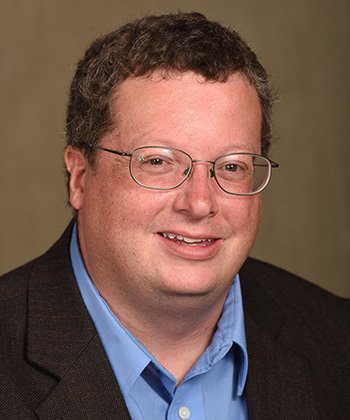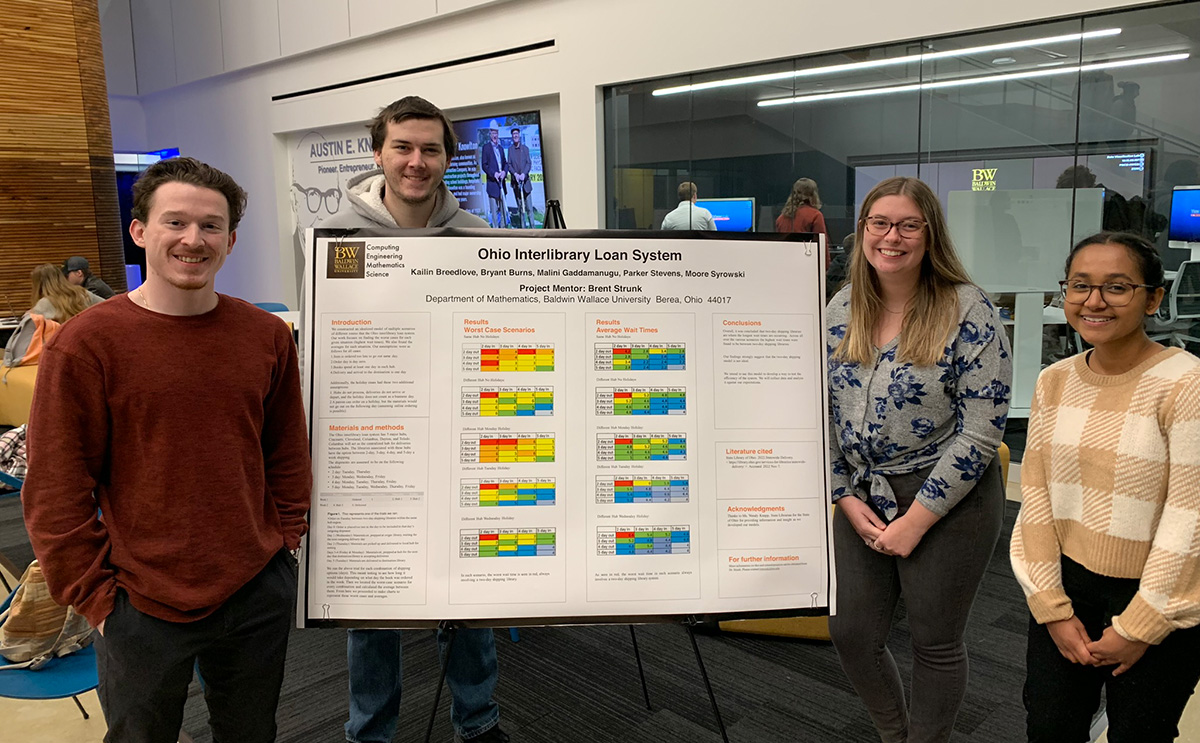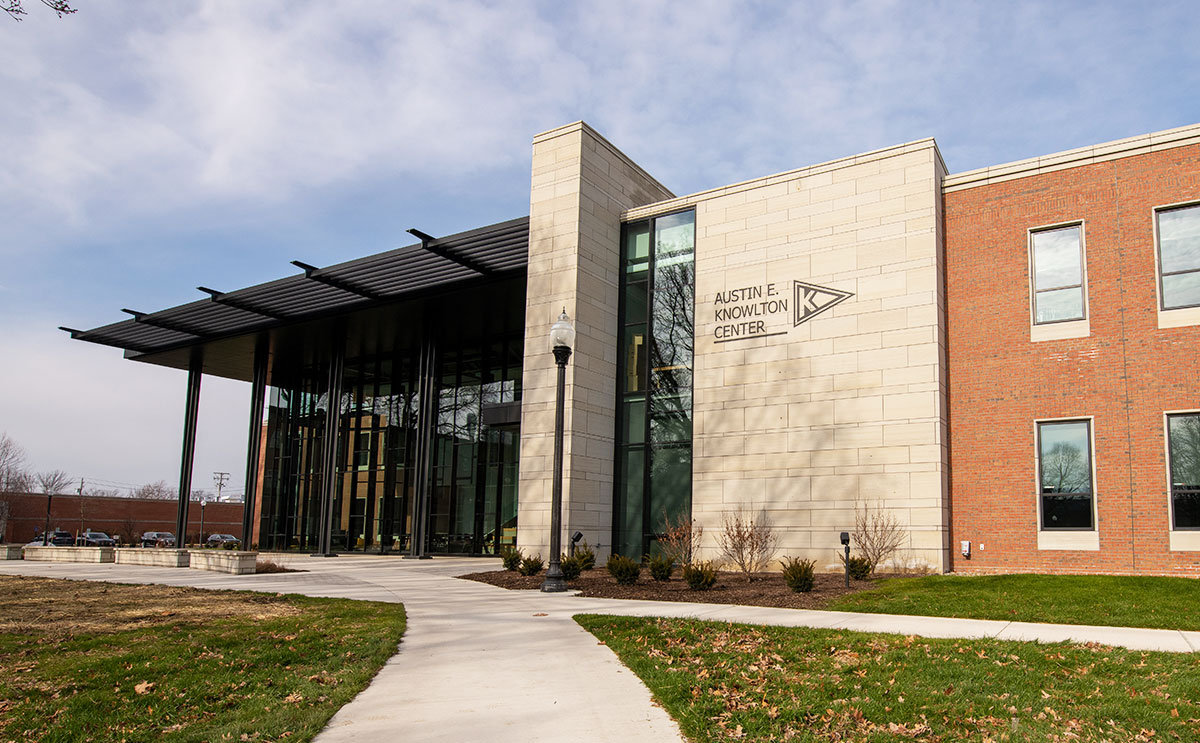
Chair, Mathematics, Statistics & Computer Science Department
Ph.D., Purdue University
School of Science and Engineering
(440) 826-5944, bstrunk@bw.edu
Taught by faculty who are committed to your growth, the mathematics major is a versatile program that provides you with a foundation of pure and applied mathematics, leading to a wide range of career opportunities.

Do you want to use your love for mathematics in your future career? Mathematicians excel in ingenuity, analysis and problem-solving. As a mathematics major, you will build outstanding mathematical, computational and communication skills.
Students often pair the mathematics major with a companion field of study such as computer science, physics, finance, or data science, a powerful combination that adds depth to the mathematics major. Many students choose to pursue graduate study in the mathematical sciences to further broaden career opportunities.
If you love mathematics and want to use it to contribute to the workplace, BW’s mathematics program offers an excellent foundation.
Practical application is at the core of applied mathematics. It offers a concrete methodology for which modeling, predicting and explaining how things in the real world can be done in an orderly manner.
Pure mathematics focuses on mathematical theory and is more broad-based. While there is significant overlap and both offer career-preparative benefits, the selection of one discipline over the other relates to an individual's career goals.
Within the mathematics major, students will have the opportunity to choose the applied mathematics or pure mathematics pathway.
If you would like to become a mathematics teacher, BW has an outstanding teacher education program.
Our alumni have flourished in business, industry, government, and secondary and higher education. They are skilled problem solvers and bring a quantitative perspective that is highly prized in the workplace. Many BW mathematics alumni also choose to attend graduate programs in mathematics.
Mathematics graduates have worked for employers such as Cleveland Clinic, KeyBank, USPS, Hyland Software, Walt Disney World and Progressive.
After graduation, there are a variety of career paths you may choose from including:
Mathematics majors will consult with their academic advisors and can specialize by choosing the pure or applied track through the major. Students in the mathematics program take foundational courses and participate in a senior-level research experience. All math majors also receive a background in computing. The curriculum is designed to provide rigorous training in the subject combined with elective options offering flexibility.
As a mathematics major you will enjoy small classes with faculty who know you and are committed to your learning. We offer numerous opportunities on and off campus to present your work to the public.
Many of our students complete internships, which can lead to full-time employment. The mathematics program is housed in the University’s beautiful Knowlton Center, an ideal location for study, collaboration, and community.
BW's Knowlton Center provides students with innovative learning experiences in engineering, mathematics, computer science and physics that will enable them to explore cybersecurity, artificial intelligence, mathematical modeling and simulation, robotics and optics while connecting with industry leaders.

Members of this national mathematics honorary society have achieved standards of scholarship, professional merit and academic distinction.
The BW Choose Ohio First STEM Scholars Program is open to Ohio residents who are entering Baldwin Wallace in the fall as a first-year student or transfer student and are interested in mathematics. Students are eligible to apply to the program which also offers the Choose Ohio First scholarship, awarding substantial annual, renewable scholarships.
Brent Strunk
Chair, Mathematics, Statistics & Computer Science Department
Professor of Mathematics
Ph.D., Purdue University
David T. Calvis
Professor of Mathematics
Ph.D., University of Michigan
Laura Croyle
Associate Professor, Mathematics
Ph.D., University of Kentucky
Melissa Dennison
Professor of Mathematics
Ph.D., University of Illinois
Chungsim Han
Professor of Mathematics
Ph.D., Brandeis University
Catherine Lane
Associate Professor, Mathematics
Ed.D., University of Cincinnati
Peggy Slavik
Associate Professor of Mathematics
Core Mathematics Coordinator
Ph.D., Kent State University
Barbara T. Aylward
Lecturer in Mathematics
M.A. Mathematics, John Carroll University
Lauren Brubaker
Lecturer in Mathematics
M.S., Mathematics, University of Akron
John Domanski
Lecturer in Mathematics
M.S.E.E., Cleveland State University
Amy Nowacki
Lecturer in Mathematics
Ph.D., Medical University of South Carolina
Viviane Nguyen
Lecturer in Mathematics, Physics and Computer Science
Ph.D, North Carolina A and T State University
Matthew Perkins
Lecturer in Mathematics
M.S., Mathematics, Cleveland State University
Christine Strunk
Lecturer in Mathematics
Ph.D., Purdue University